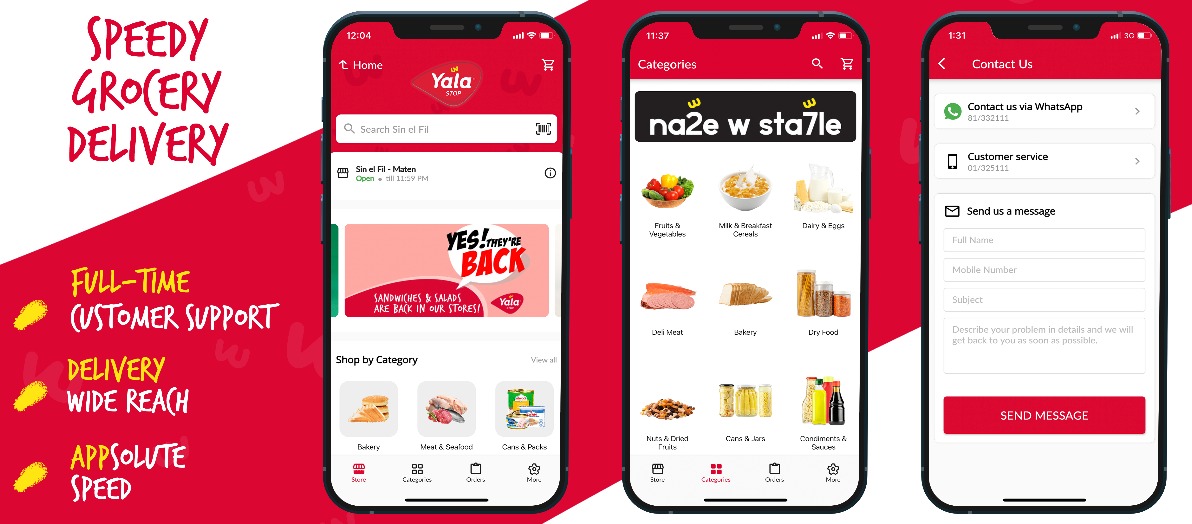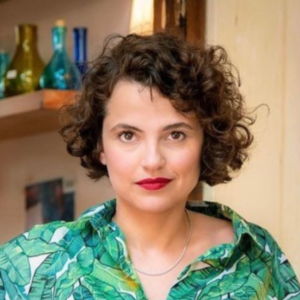
Yala Stop has recently launched the first version of its online shopping application allowing users to order their groceries on the platform, providing instant delivery or pickup from the 35 different physical stores spread across Lebanon.
The app is an online grocery platform empowered by the disruptive quick commerce dynamic, providing an almost instant grocery delivery or pickup solution to Lebanese households, corporate or individual customers.
Antoine El-Am is the Managing Director at Development & Operations of Convenience Stores (DOCS SAL), operator of the convenience store concept ‘Yala Stop’ in Lebanon. He brings twenty years of experience in FMCG retail, CP distribution, and omnichannel management. We chatted with Antoine about the launch of the app, the value it brings to the Lebanese market, and the challenges the team is facing in quick-shifting sands.
Q: How did you get inspired to create it?
A: Yala Stop at the base is a leading petrol convenience store concept in Lebanon, featured within Medco and Phoenicia petrol stations that in turn have been serving the Lebanese market for more than 100 years. As part of the brand omnichannel strategy, and after a 5-year online journey onboard aggregator platforms, Yala Stop decided to step up to a standalone app where the experience of the brand can be streamlined more effectively across all channels.
Q: How many persons are part of the team?
A: The Yala Stop brand physical stores and online platform are operated by DOCS SAL. We are a team of 250 individuals working across multiple functions, yet each one of us has his own contribution towards building and championing the online grocery market.
Q: What is your market? Is it local, regional, or global?
A: Currently we are focused only on championing the Lebanese market for three main reasons. First, because it’s a natural expansion since our brick-and-mortar infrastructure has been serving the Lebanese market for more than 20 years. Second, because we love Lebanon and are determined to maintain our presence and grow no matter the obstacles and turmoil. Finally, with the current complexity and risk of the Lebanese ecosystem, and as we face a drop in consumer purchasing power, challenges on the last mile delivery, limited resources across industries, etc., we believe this complexity can validate further business models and can enable them to scale faster across other markets.
So, for now, we are internally focused with an eye wide open.
Q: How do you differentiate yourself from competitors?
A: We look at our value proposition as an intersection between multiple performance indicators, where the outcome can be the best experience possible. The different aspects that intersect are being challenged continuously from within, and ultimately our goal is to be the best on all levels:
- The technology is at the base. From the UX/UI and across each click of the shopper journey, a stream-lined fast and easy shopping experience is leading the way.
- The offering is wide enough to answer all needs yet not so boring, time-wasting, and repetitive.
- The consumer-centric pricing, where shoppers don’t have to pay a premium for the convenience.
- The value for the money, where our product selection is heavily filtered to meet the quality for the price.
- The bundles and promo activations promote savings and keep up the hype.
- The advanced stock accuracy is achieved through a highly effective API stock integration between the app and physical store, an integration that can compete with dark store accuracy levels.
- We are the only effective grocery instant pickup solution, where you can order your basket and pick up your products within 15 min from any of our 35 locations that are mostly located on highways and across the country.
- The wide reach of our service goes from Batroun to Borj-l-Brajne coastal strip, and across Keserwan, Maten & Baabda middle land. We cover as well Taanayel and part of Zahle.
- The delivery speed commitment to deliver faster, currently challenging our 25 minutes further as we introduce new stores to the network.
- A support team following on orders across all the cycle and ready to intervene when required.
- A dedicated call center which customers can reach anytime via the phone or Whatsapp.
- The brand consolidation experience, one experience whether at the brick or in a click.
Q: What kind of business model are you implementing? How are you planning to scale?
A: Our business model is omnichannel, so our physical stores are the infrastructure for our online platform, unlike dark-store models. We think the synergy is giving us an overhead cost advantage. Our scalability goes hand-in-hand, physical and online since any economically viable physical store has to share the same reach fundamentals for grocery delivery and pickup. Some might think that there is a conflict of interest between both verticals, where one might create a bottleneck to the other. Our answer can be found in technology, as we continuously innovate solutions into that direction, solutions that can facilitate the work and eliminate conflicts. And so, we are enabled to scale while enjoying both walk-in and delivery.
As for the cost of scaling, our stores are very modular in design and minimalist in construction, with a slightly higher setup cost than dark stores yet providing a more tangible experience on all levels. However, dark stores can be a solution in some contexts yet it will only be a best alternative.
Q: How are you marketing Yala Stop?
A: Currently and as planned, we are still shallow on marketing since we only introduced the platform in September and had to go through a validation phase of 3 months. Our marketing so far was limited to social media, some limited SMS campaigns, and direct marketing to our close circle of customers and influence. Moreover, we are planning the launch to be very soon and should cover multiple communication channels.
Q: How do you see your customer base evolving?
A: Since the beta launch, we have had excellent traction considering the minor marketing communication done so far. We currently have more than 5000 active users and our target is to cross the 100,000 within a year. That should be a promising indicator of what’s coming next.
Q: What have your biggest challenges been?
A: I think today we share the same ‘biggest’ challenge with many other industries, that is the ‘last mile’ delivery. From driver retention, quality of service, fuel price, to an unjustified FEE/BV ratio, the current status is not sustainable. I believe and hope that something disruptive should come out of this misbalance.
Q: What would you advise anyone looking at Yala Stop and saying: “I’d like to build something like that?”
I am only an employee yet have the biggest ownership towards the company, the same as everyone else in our team. When you believe in something and have what it takes, do not listen to anyone telling you otherwise and make sure you lead the way.
Download the Yalla Stop app here.









